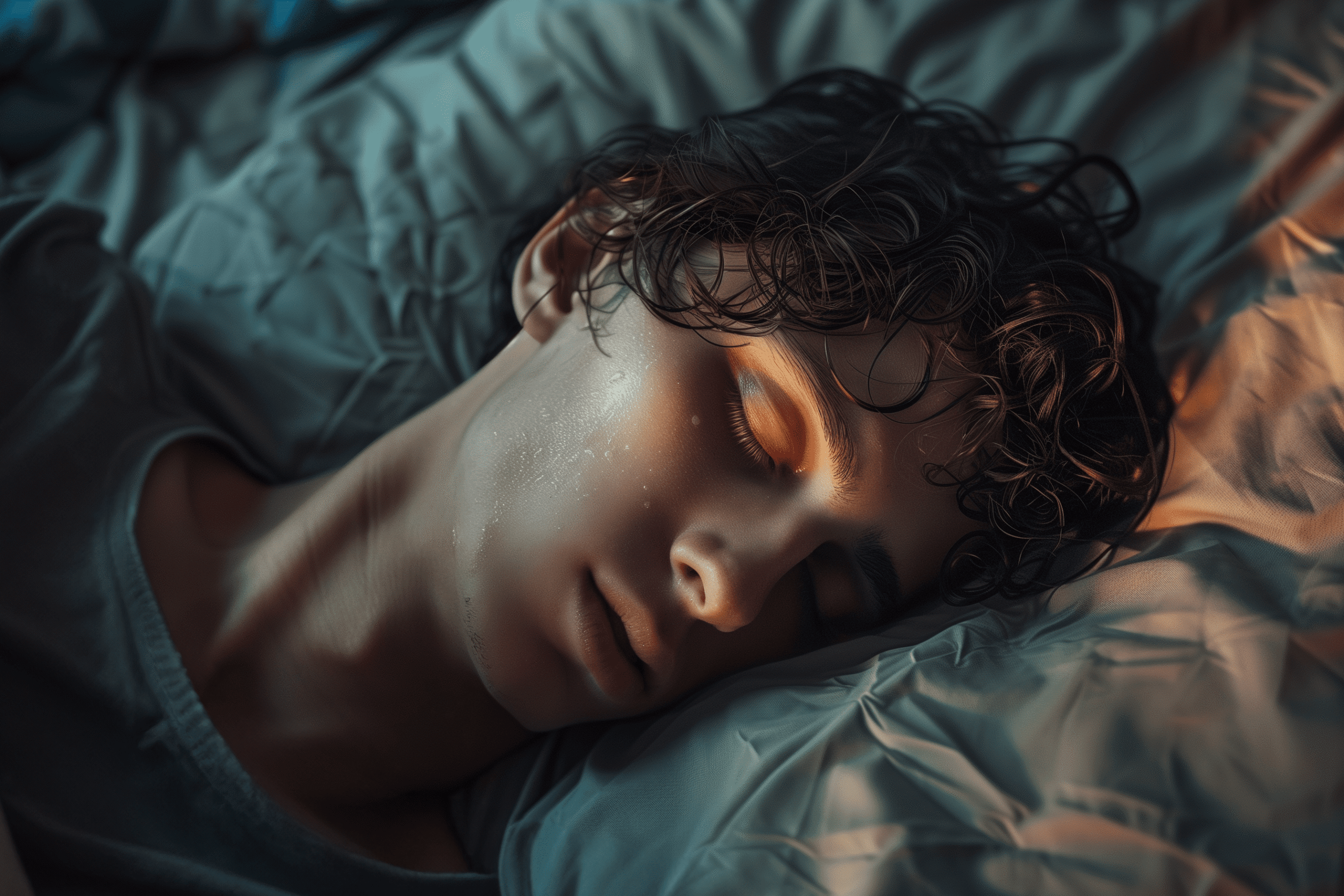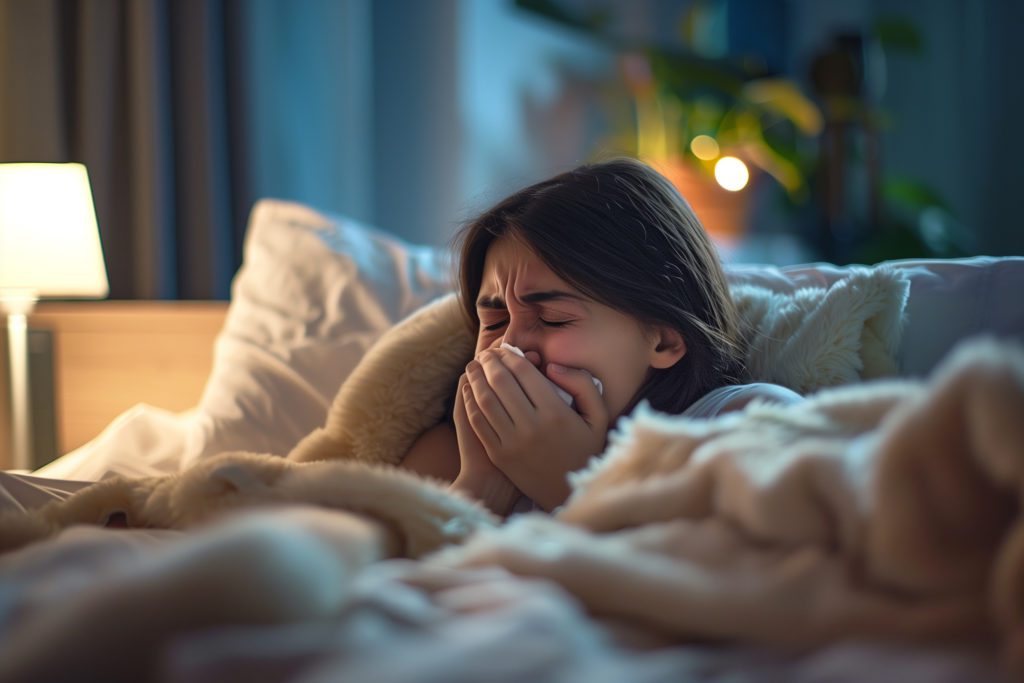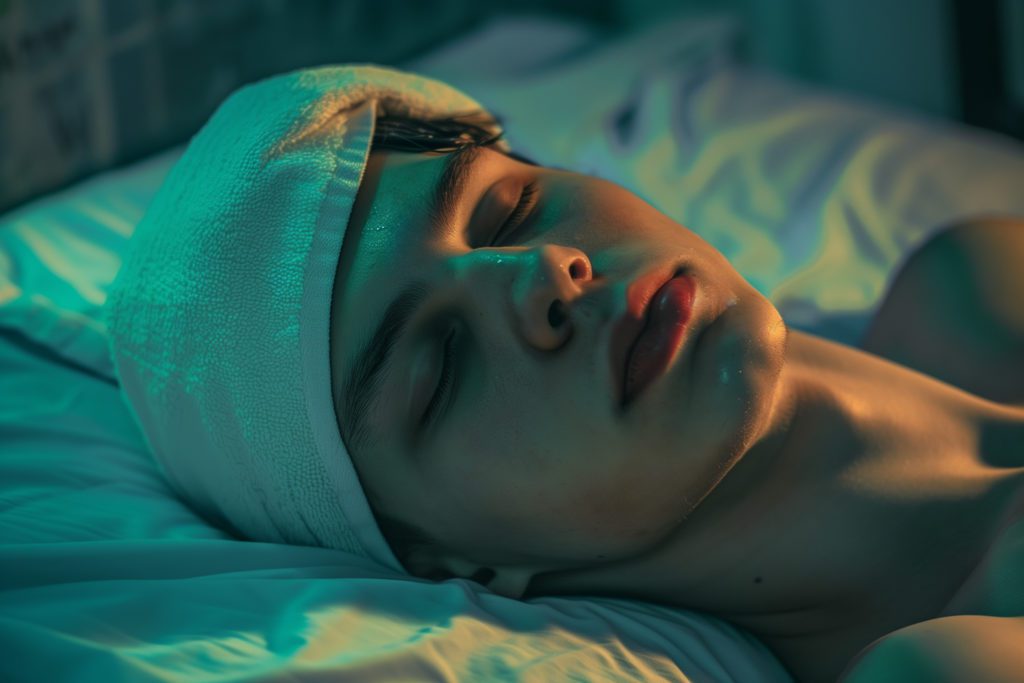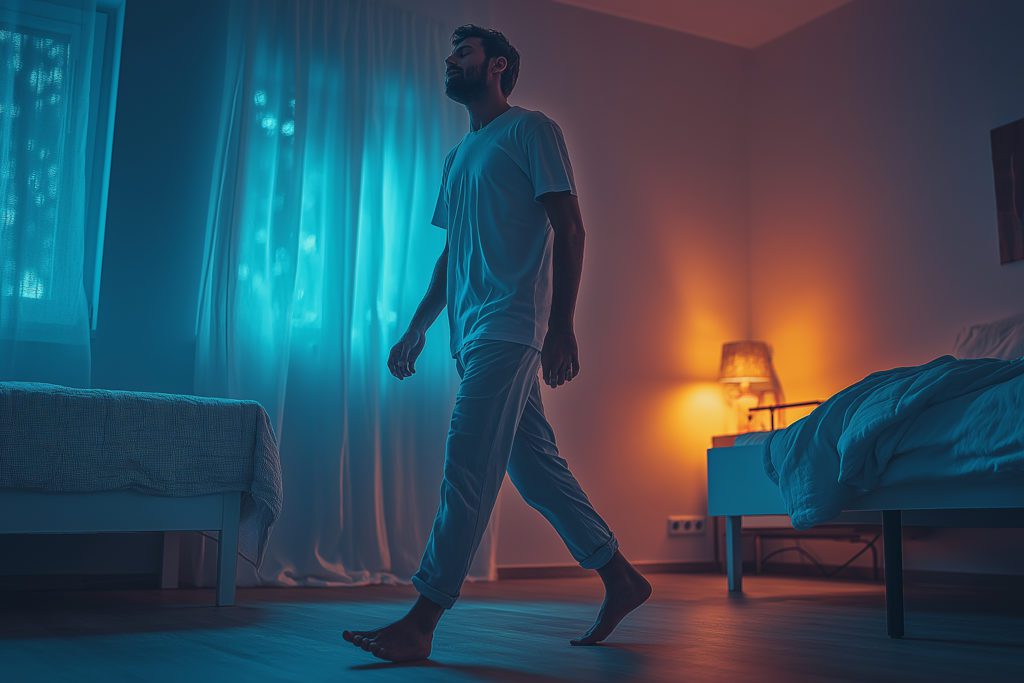
Why Do I Sweat in My Sleep? Solving the Night Sweats
Drenched sheets at night? Learn the surprising reasons you sweat in your sleep, and discover how you can stay dry and sleep tight.

Exploring the causes and cures for nighttime sweating
Waking up drenched as if you've been swimming in your sheets—not exactly a nice way to sleep. If your nights are more soggy than serene, you might be experiencing what's known as night sweats. This is when your body unexpectedly cranks up the heat during sleep, and not just because you’re in a warm room.
Whether it's due to medical conditions or spicy snacks before bed, various factors can contribute to intense sweat sessions. So, let's look at why your nighttime sometimes turns into a sweat lodge and how you can reclaim a dry, cool evening.
What are night sweats?
Night sweats are episodes of excessive sweating occurring during sleep which are not solely due to a hot sleeping environment. Medically known as sleep hyperhidrosis, this condition causes you to sweat so much that your night clothes and bedding can become soaked, even if the room temperature is cool.
Unlike the occasional mild sweating everyone might experience on a warmer night, night sweats are intense enough to disrupt your sleep and can be a signal from your body that something more serious might be at play. They can arise from underlying health issues, medications, or lifestyle factors, setting them apart from just getting hot under a heavy blanket.
And here’s the kicker: Knowing the difference is pivotal for identifying when it might be more than just the thermostat causing trouble at night.
Why do I sweat in my sleep?
Wondering why your sleep sometimes feels like a spontaneous heat wave? While it might be tempting to blame the thick blankets or the spicy dinner, the reasons behind night sweats can sometimes be serious. Let’s explore some of the primary causes that could be turning up the heat.
Lifestyle factors
- Spicy foods: Ingredients like capsaicin can trick your body into feeling hotter.
- Alcohol consumption: Alcohol dilates blood vessels and increases your body temperature.
- Caffeine: This stimulant can rev up your metabolism, raising body heat.
- Stress and anxiety: Emotional stress can trigger your sympathetic nervous system, leading to increased sweating.
Medications
- Antidepressants: A common side effect of many antidepressants is increased sweating.
- Diabetes medications: Drugs like insulin can affect your metabolism and increase sweating.
- Hormone therapy: Treatments involving hormone adjustments can lead to thermal regulation changes.
- Pain relievers and steroids: Certain analgesics and steroids have been noted to cause night sweats.
Medical conditions
- Infections: Conditions like tuberculosis or bacterial infections can elevate body temperature as your immune system fights off pathogens.
- Hormone fluctuations: Disorders like hyperthyroidism or menopause can disrupt normal hormonal balances, leading to increased sweating.
- Chronic illnesses: Diseases such as diabetes or autoimmune disorders frequently list night sweats among their symptoms.
- Cancers: Lymphoma and leukemia can cause severe night sweats as a symptom of their progression.
Night sweats can stem from a cocktail of causes, so pinpointing the exact reason can be complex. But getting familiar with these common and rare triggers can help you identify potential changes you might need to discuss with your doctor or adjust in your daily habits to reduce episodes.
Impact on sleep quality and health
More than just a nuisance, dealing with night sweats is a disruption that can seriously mess with your sleep. Imagine trying to get some shut-eye in a sauna—not ideal, right?
Night sweats can frequently interrupt your sleep, making it hard to enter deep, restorative sleep stages. Each episode not only snaps you out of your slumber but can also make it challenging to fall back asleep, especially if you need to change damp sleepwear or bedding.
The ripple effects of these disrupted sleep patterns can be significant. Chronic sleep deprivation from frequent awakenings can lead to a range of long-term health issues. It can impair your cognitive functions, making concentration and memory as elusive as a cool spot on your pillow.
Additionally, poor sleep is linked to mood changes, increased stress levels, and a weakened immune system. Over time, the lack of quality sleep might also contribute to more serious conditions like heart disease, obesity, and diabetes.
So, if night sweats are turning your nights into a struggle, remember that it's not just about comfort—it's crucial for your overall health to address them.
Practical tips for managing night sweats
Cooling down your nights starts with a few practical changes, both in your bedroom environment and bedtime habits. Here's how you can take action:
- Adjust your bedroom environment:
Keep the room cool with air conditioning or a fan. Consider using a mattress and pillows that are designed for cooling. - Choose the right sleepwear and bedding:
Opt for lightweight, moisture-wicking fabrics in both your pajamas and your bedding. These materials help pull moisture away from your body, keeping you drier and more comfortable. - Review your lifestyle choices:
Limit spicy foods, caffeine, and alcohol near bedtime, as these can raise your body temperature. - Use a sleep tracker:
Monitor your sleep patterns and bedroom temperature to see if your changes are working and to better understand what triggers your night sweats.
If night sweats are consistently interfering with your sleep and these adjustments don’t seem to help, it might be time to consult with a doctor. Persistent sweating at night could be a sign of a deeper health issue––a professional can help you get to the bottom of it and suggest more specific treatments.
Keeping your cool throughout the night
Sweating in your sleep might not always ring alarm bells, but regularly waking up drenched could signal something more than just an overly warm room or cozy pajamas. Adjust your sleep environment, make various lifestyle tweaks, and check in with your healthcare provider to reclaim those precious hours of rest.

Written by
Georgia Austin
Professionally trained copywriter, editor, and content marketing strategist with over 7 years of experience—working with brands like Nike, Siemens, Toshiba, Tommy Hilfiger, Culture Trip, and Klook.
Download Pillow
Get help
Press & News
Legal
Connect
X (Twitter)
Company
Copyright © Neybox Digital Ltd.



